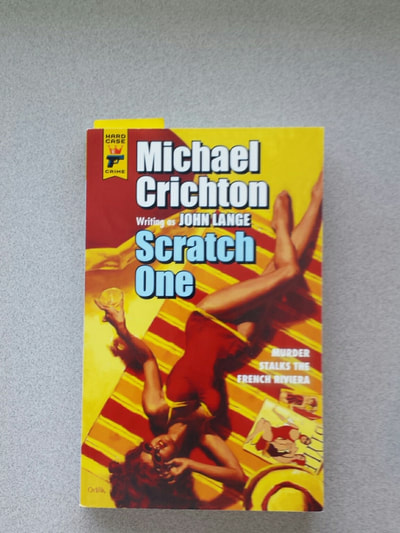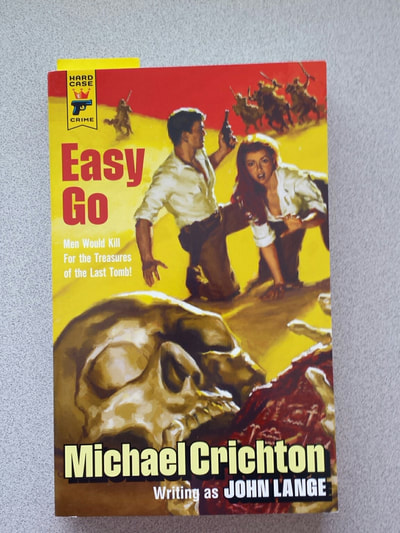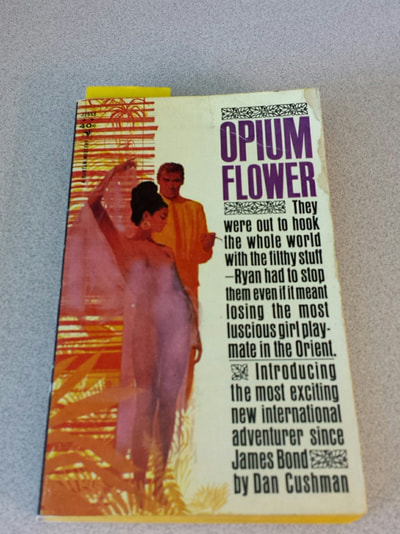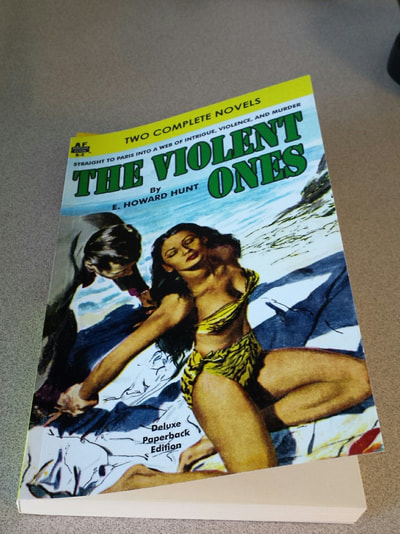But that's fine once in a while. I wanted to try something different, something by authors I'd never read. I came across OPIUM FLOWER, by Dan Cushman, a writer who I'd previously only known as a writer of westerns. The blurb sounded so-so, but I bought it really for the Robert McGuiness cover painting. Overall, I was very disappointed in the novel (it's terrible), but, though somewhat older than the Crichton/Lange novels, it follows the same basic pattern: a Korean War veteran traipsing through Southeast Asia, trying to smuggle opium (at the US government's behest) out of Laos in order to figure out how the "real" bad guys are getting it into the US. But almost beat-for-beat, it follows the same pattern as Lange.
Well, moving on, to something even older, by a much more famous (infamous, even), author: E. Howard Hunt's THE VIOLENT ONES, from 1950. And what do you know? It follows the exact same pattern: a WWII veteran in France, trying to find who murdered his childhood friend over gold missing since the war. THE VIOLENT ONES is better written than the Lange or Cushman novels (it's very serious in tone and the prose is really quite good), but the essence is the same.
And I started thinking about this pattern and it's origins and it hit me immediately: almost an entire generation of American men went to war in Europe and Asia, in WWII and the Korean War, then came home, most settling down to marriage, families, jobs. But even years later, in the 50s and 60s, many were still relatively young (the average age of a US serviceman in WWII was 19, I've read), and probably, let's be frank, many were probably bored as so many of us are with our own monotonous lives today.
But unlike many of us today, many of these men had literally deadly experiences in foreign countries, places that probably seemed both foreign and familiar after years away, and a certain nostalgia probably developed - a sort of what might have been. I'm sure that these characters in the novels I've mentioned, and likely thousands of other books, were intended to be a sort of every man for that generation - a "this could have been YOU, reader" kind of thing. Of course, these readers knew that wasn't so, and most probably wouldn't want it to be so, but it's always nice to dream of adventure, right? It's certainly a lot safer than living it.
Maybe I'm off base, but this makes a lot of sense to me.
What do you think?





 RSS Feed
RSS Feed